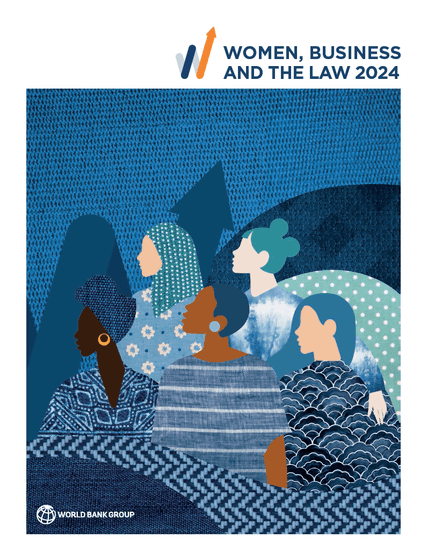Study reveals nowhere in the world do women have the same legal rights as men

The World Bank's Women, Business and the Law 2024 report finds that the global gender gap is much larger than previously thought: no country in the world has equal legal rights to women as men, and women enjoy less than two-thirds the rights that men enjoy.
New data shows global gender gap wider than expected
https://www.worldbank.org/en/news/press-release/2024/03/04/new-data-show-massive-wider-than-expected-global-gender-gap
WOMEN, BUSINESS AND THE LAW 2024
(PDF file) https://openknowledge.worldbank.org/server/api/core/bitstreams/d891abb1-ca9c-42cd-989f-32d3885189a2/content

When Women Win, the World Wins
https://blogs.worldbank.org/en/voices/when-women-win-world-wins
The report compiles the findings of a survey conducted in 190 countries and regions.
The survey found that, on average, women enjoy only 64% of the legal rights that men do, far down from 77% in the previous survey.
For example, 98 countries and regions have laws requiring men and women to be paid equally for work of equal value, but only 35 countries have mechanisms to ensure transparency and eliminate wage disparities.

For example, Togo has a unique law that gives women 77% of the rights that men have. However, because there is no mechanism to enforce this law, women in Togo only have about 27% of the rights that men have, a ratio that is typical in other sub-Saharan African countries.
The reason why the figures related to the legal rights enjoyed by women in this survey have decreased compared to the previous survey is due to the influence of two new indicators: 'childcare' and 'safety measures to protect against violence.'
On average, women spend 2.4 hours more per day on childcare than men, and it is believed that improving childcare services would more than double female labor force participation within five years. However, less than half of the countries and regions surveyed (78) offer support policies for families with young children, and even fewer (62) have set standards for the quality of childcare services.

Furthermore, safety measures to protect against domestic violence, sexual harassment, underage marriage, and misogyny murder have hardly been put in place. For example, while 151 countries and regions have laws banning sexual harassment in the workplace, the number drops to just 39 countries when it comes to banning sexual harassment in public places.
Women are also treated poorly in business, with only about 20% of companies having procurement processes in place that take gender equality into consideration when starting a business. Women are paid only 77% of the wages of men, and in 62 countries and regions, the retirement age is lower than that of men, increasing women's economic insecurity.

According to Indermit Gill, Chief Economist and Senior Vice President for Development Economics at the World Bank Group, eliminating the gender gaps created by discriminatory laws and practices could increase global gross domestic product by more than 20 percent, effectively doubling global growth over the next decade.
'Only half of women participate in the workforce, while almost three-quarters of men do. This is not only unfair, but also wasteful,' said project manager Tea Trumbic. 'Countries cannot afford to leave half of their population, the female, on the sidelines.'
Related Posts:
in Note, Posted by logc_nt







